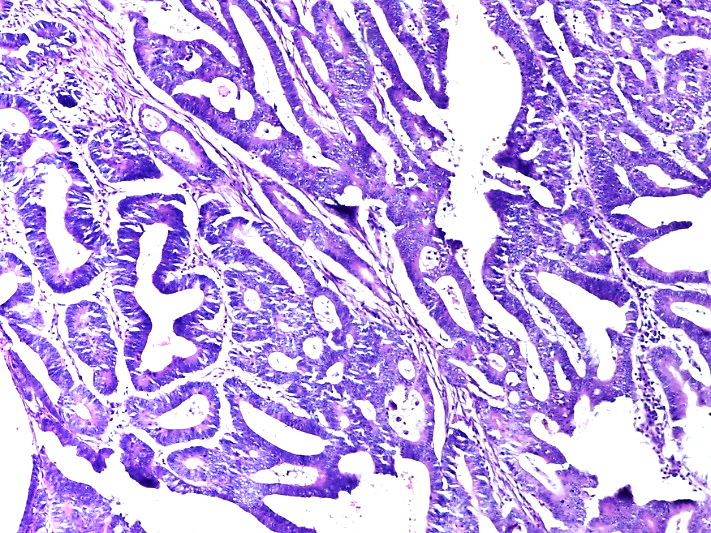P53 expression in colorectal carcinomas study at a tertiary health care center in South Kerala
Keywords:
Colorectal carcinoma, p53, Lymph node, Immunohistochemistry, PrognosisAbstract
Introduction: Colorectal carcinoma (CRC) ranks as the third most ubiquitous cancer globally and the fourth primary source of cancer-related mortality. Loss of the p53 gene is vital in the conversion of colorectal adenoma into carcinoma. The study aims to evaluate the prevalence of p53 expression and investigate its correlation with diverse clinicopathological parameters, providing valuable insights into the dynamics of colorectal cancer in the specified region.
Methods: A total of 42 CRC cases from tertiary healthcare center in South Kerala, India, were sampled between December 2018 and January 2021. Comprehensive clinical data and clinicopathological parameters were collected, followed by histomorphological and immunohistochemical evaluations. The results were then correlated with clinicopathological variables.
Results: Patients aged 45 to 82 years (mean 63.5) exhibited a predilection for the left colon (57%) and rectum (33%), with symptoms ranging from abdominal pain to weight loss. Histologically, 95.2% were adenocarcinomas, mostly moderately differentiated (57.1%). Tumor extension (T3: 57%) and lymph node involvement (N1: 29%) were prevalent, with Stage II tumors (38.1%) most frequent. P53 immunoreactivity was observed in 83.3% of cases, correlating with moderately differentiated grades, higher tumor extensions (T3/T4), N1/N2 lymph node statuses, and Stage II/III tumors. No significant associations were found with age, sex, lesion site, or tumor type. P53 nuclear positivity, identified through IHC analysis, provides crucial insights into cancer biology, prognosis, and potential therapeutic implications. The finding highlights significant associations between p53 expression and key clinicopathological parameters. P53 positivity is notably higher in moderately differentiated tumors (Grade) and T3/T4 tumor extensions compared to well and poorly differentiated grades and T1/T2 extensions, respectively. Significant links were also observed with lymph node status (N1/N2 > N0) and tumor stage (S2/S3 > S1), indicating a strong correlation between p53 expression and advanced disease characteristics. However, no significant associations were found with age, sex, lesion site, or tumor type. The novelty of our study lies in the focused exploration of p53 expression in colorectal carcinomas. By specifically investigating the correlation between p53 expression and various clinicopathological parameters, we contribute a unique perspective to the understanding of the molecular characteristics of colorectal cancer. This targeted approach enhances the visibility of novel insights that our study brings to the field of p53 expression in the context of colorectal carcinomas.
Conclusion: Our investigation underscores that p53 overexpression is particularly prominent in advanced-stage colorectal cancer cases and those having LNM, further supporting its role as an adverse prognostic marker in this context.

Additional Files
Published
How to Cite
License
Copyright (c) 2023 Alina Ajoy Thomas, Meeta Thomas, Jessy M.M

This work is licensed under a Creative Commons Attribution-NonCommercial 4.0 International License.
